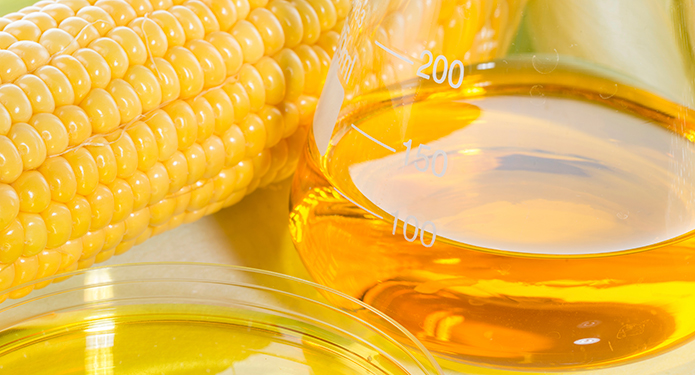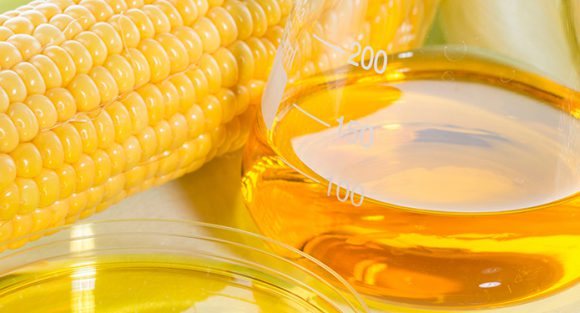
Is high fructose corn syrup really bad?
Is it? Well, it depends on what you’re comparing it to and the quantity being used. I wanted to talk ab out this, because I’m tired of telling people that sugar is sugar. It doesn’t matter if it’s fruit sugar, table sugar or high fructose corn syrup (HFCS). Yeah, you heard me, just as bad as corn syrup. The ones who tend to be the most argumentative are the so called “health nuts” or “health experts”. Recently I have heard some arguments from people with strong convictions (not strong evidence) about the healthy fruit sugar added to foods vs anything else. So, I figured that I would do a little more research on the matter and check to see who is full of shit (shit, I meant sugar), me or them. Either way, by the end of this post we are going to find out.
out this, because I’m tired of telling people that sugar is sugar. It doesn’t matter if it’s fruit sugar, table sugar or high fructose corn syrup (HFCS). Yeah, you heard me, just as bad as corn syrup. The ones who tend to be the most argumentative are the so called “health nuts” or “health experts”. Recently I have heard some arguments from people with strong convictions (not strong evidence) about the healthy fruit sugar added to foods vs anything else. So, I figured that I would do a little more research on the matter and check to see who is full of shit (shit, I meant sugar), me or them. Either way, by the end of this post we are going to find out.
What is HFCS? Good question (Mostly ’cause I asked it). HFCS is derived from corn, with the main types consisting of 42% fructose or 55% fructose along with glucose, dextrose, and minor amounts of oligosaccharides (basically, simple sugars) [1]. This is known as HFCS -42 and HFCS-55. Now, there is also HFCS-90 (90% fructose), which is rarely ever used and usually in very small  quantities. It is called high fructose, not necessarily because it has a higher fructose content than table sugar/sucrose (50% fructose and 50% glucose), or fruit sugar, but because the previous version of corn syrup was mostly glucose. So, by comparison it has a higher fructose content. Other than the percentages, what is the difference between the more commonly used HFCS-42/55, and table sugar or fruit sugar? Well HFCS has unbonded fructose and glucose layers, whereas table and fruit sugars have the fructose and glucose bonded to each other. FYI, fruit sugar has varying percentages of glucose and fructose depending on the fruit. On average, roughly 40 to 55% fructose. However, there are outliers, with 65% fructose in apples and pears and 20% fructose in cranberries.
quantities. It is called high fructose, not necessarily because it has a higher fructose content than table sugar/sucrose (50% fructose and 50% glucose), or fruit sugar, but because the previous version of corn syrup was mostly glucose. So, by comparison it has a higher fructose content. Other than the percentages, what is the difference between the more commonly used HFCS-42/55, and table sugar or fruit sugar? Well HFCS has unbonded fructose and glucose layers, whereas table and fruit sugars have the fructose and glucose bonded to each other. FYI, fruit sugar has varying percentages of glucose and fructose depending on the fruit. On average, roughly 40 to 55% fructose. However, there are outliers, with 65% fructose in apples and pears and 20% fructose in cranberries.
What does the research say? The research is pretty interesting, to say the least. Several studies have shown the negative effects of consuming fructose and made comparisons to glucose consumption. The results show that fructose promotes dyslipidemia (increase in cholesterol and triglycerides), decreases insulin sensitivity, and leads to increases in visceral adiposity [2, 3, 4, 5]. When compared to glucose, one study showed that consuming fructose-sweetened and not glucose-sweetened, beverages increases visceral adiposity and lipids and decreases insulin sensitivity in overweight/obese people [2].
Death knell for HFCS? This is bad for HFCS, isn’t it? Not really, remember, the commonly used forms of HFCS (42% and 55% fructose) have both fructose and glucose which is not that different from table or fruit sugar. The studies, only looked at, either pure fructose vs nothing, or pure fructose vs pure glucose. Many studies compared HFCS to sucrose and showed that they were similar, in terms of their effects on the body, with glucose being slightly better [6, 7, 8, 9]. Sure, HFCS does have a negative impact on the body, but so does table sugar.
But, but, what about the Princeton Study? Now, I know some ‘egg head’ (It’s a joke…get over it) is going to bring up the  controversial Princeton Study [10], which suggests that HFCS is more likely to lead to obesity than sucrose. In this study, mice were fed 12 h/day of 8% HFCS, and 12 h/day 10% sucrose, and gained more total body weight (and abdominal fat) with HFCS than with sucrose. The complaint about this study (as it relates to our concerns), is that they never stated the starting weight of the mice. The researchers defended this by saying that ‘they were weight controlled’, meaning their starting weights were, essentially, the same. Now, if this is such a point of contention, then the researchers should simply state what the starting weights were. Not sure why they still won’t.
controversial Princeton Study [10], which suggests that HFCS is more likely to lead to obesity than sucrose. In this study, mice were fed 12 h/day of 8% HFCS, and 12 h/day 10% sucrose, and gained more total body weight (and abdominal fat) with HFCS than with sucrose. The complaint about this study (as it relates to our concerns), is that they never stated the starting weight of the mice. The researchers defended this by saying that ‘they were weight controlled’, meaning their starting weights were, essentially, the same. Now, if this is such a point of contention, then the researchers should simply state what the starting weights were. Not sure why they still won’t.
A more recent 2017 study [11], using a similar setup with 8% HFCS, and 10% sucrose, showed the opposite effect. The mice gained more overall weight with the sucrose, than with HFCS. Not a lot of evidence to show that HFCS is worse than regular table sugar.
Well, fruit sugar is healthy…isn’t it? As stated earlier, there is not much difference between sugar in fruit vs  table sugar or HFCS…depending on the fruit. But, all the health ‘gurus’ (nuts) say that eating fruit results in less of a blood sugar level spike than drinking a can of soda, sweetened with HFCS. So what? Listen, this is a ridiculously unfair comparison. First, a can of soda has a hell of a lot more sugar, in it, compared to a fruit (pretty much any fruit). Second, when you consume fruit, you consume fiber, water, nutrients…etc. vs basically sugar and water, in a can of soda. So, naturally a fruit will take longer to digest, resulting in less of a spike.
table sugar or HFCS…depending on the fruit. But, all the health ‘gurus’ (nuts) say that eating fruit results in less of a blood sugar level spike than drinking a can of soda, sweetened with HFCS. So what? Listen, this is a ridiculously unfair comparison. First, a can of soda has a hell of a lot more sugar, in it, compared to a fruit (pretty much any fruit). Second, when you consume fruit, you consume fiber, water, nutrients…etc. vs basically sugar and water, in a can of soda. So, naturally a fruit will take longer to digest, resulting in less of a spike.
Listen carefully, I will only say this once, take the fruit sugar out of the fruit (to sweeten something), and it is simply added sugar….stop calling it fruit sugar. It’s not as though the nutrients and fiber go with it. It’s just bloody sugar.
Final thoughts Look, stop arguing about which sugar is worse, and stop thinking that something sweetened with fruit sugar or table sugar is more healthy than HFCS. I will admit that HFCS might be a little bit worse than table sugar, but they are all, more or less, the same thing with negative metabolic effects associated with the lot of them. Sweetening something with ‘fruit sugar’ is not healthy just ’cause it comes from a fruit.
Take the fruit sugar out of the fruit and you have, plain ol’ sugar. If you want an alternative, you might want to look into stevia. In general the key to better health, is too simply cut down on your sugar intake…period.

Hi! I really appreciate you have presented facts clearly in this post. It doesn’t matter if the sugar comes out of a fruit, or it’s table sugar, or HFCS. They are all sugar and cause the same effects on our body.
Slashing sugar can be difficult at first. But after some time, it’s even enjoyable to cut off from our diet many of the sweet unhealthy stuff we consumed.
Thank you very much for clarifying this point so many “health experts” are talking about.
My pleasure….
Your article is well appreciated. No doubt what we eat determines how our body will look like. Our body needs sugar but on a moderate. The danger that sugar poses to health in high blood sugar, diabetes. So people are encouraged to eliminate or reduce any sugar from their food in take. This article is really informative and helpful. Thanks for sharing this article.
You know,I agree with you that they peddle these so called “facts” about fruit sugar and high fructose corn syrup so much that those of us who don’t do any research buy them and also start spreading them around like the gospel.. For one,a fruit lover like me thought I was ingesting a more healthy form of sugar but alas, its just the same ol’ sugar but with fiber nutrients etc. Thank you for taking the time to do the research and bringing it to us. It was very insightful.
Most of us like to tell ourselves that the type of sugar we are currently taking does not have as much negative effect as those that are considered dangerous. I too have done the same thing and use it as an excuse to consume more sugar. Unfortunately, it does not really matter the type of sugar one takes. Sugar is still sugar and if it is not taken in moderation it can really have some bad effects on our health.
Hello,
You really are passionate about this topic. I remember having a diabetic relative, and he was advised to stay off all sweet tasting fruit.
I believe that sugar is present in almost everything we consume. However, must people have reservations when taking soda because it contains more sugar compared to fruits.
Whatever we do consume, to stay on the safe side, we have to always do it in moderation. I do also use corn syrup, but I take just as little as possible.
Nice article there on things that is necessary to know about high fructose corn syrup.you really do well in this article with all your findings and researches from research result that you input. Before now I don’t see the difference between them until I read this article.i really find this article educative
Thanks for this informative post, Considering all of the health issues and diseases linked to HFCS and sugar, it may come as no surprise that studies are also starting to link them to an increased risk of heart disease and reduced life expectancy, bottom line is to avoid taking excessive HfCS and sugar as it causes more harm than good.
Well said Dave,
My friends keep saying things that really grinds my gear like, “Riaz, you should take fruit sugar because it’s healthier and it comes from a fruit!” I have trouble proving them wrong but then I came across your article and man, would they be surprised to read when you’ve written! Thanks for sharing this, appreciate it
No worries, share with your friends. People just parrot things without understanding what they’re saying.
As a teenage bodybuilder, this was super helpful because nutrition is super critical for my physique. I realize that 70% of our body is influenced by what we put into our mouth, and eating processed foods, including ingredients like high fructose corn syrup, will hurt our health. I love how you touched on sugar too, and the distinction between fruit sugar and add sugars; fruit contains nutrient such as fibers, as compared to a soda, that only has sugar. I will keep coming back for more knowledge, thank you!
Please do…there is a ton of info. on strength and bodybuilding.
I agree that all kinds of refined sugar is unhealthy. As much as a person is able to, they should eliminate all kinds of sugar from their diet to reduce the risk of developing diabetes. Every gram of sugar that is ingested, triggers the body to produce insulin. The more sugar ingested, the more insulin is needed to control blood glucose levels, A high amount of insulin produced over an extended period of time wears out a persons pancreas and diabetes develops (as well as a few other metabolic issues). I was a former diabetic educator and I saw first-hand what continuous sugar ingestion does to people.
Ramona
Yup… but people still believe sugar from fruits and other places is somehow magically healthier than HFCS.
Thanks for the information Dave. Our bodies need certain things to survive and I do believe sugar is one of them. The problem with sugar as I see it is if our diet consist of too much sugar. Too much of anything is just not good for us no matter how healthy it is for our body.
I think a person who gets their sugar intake through eating an apple compared to someone who eats a slice of apple pie may be better off.
As you put it we simple need to cut back on the amount of sugar we consume. So when we are eating any type of food we need to be aware of what is in the food we are eating.